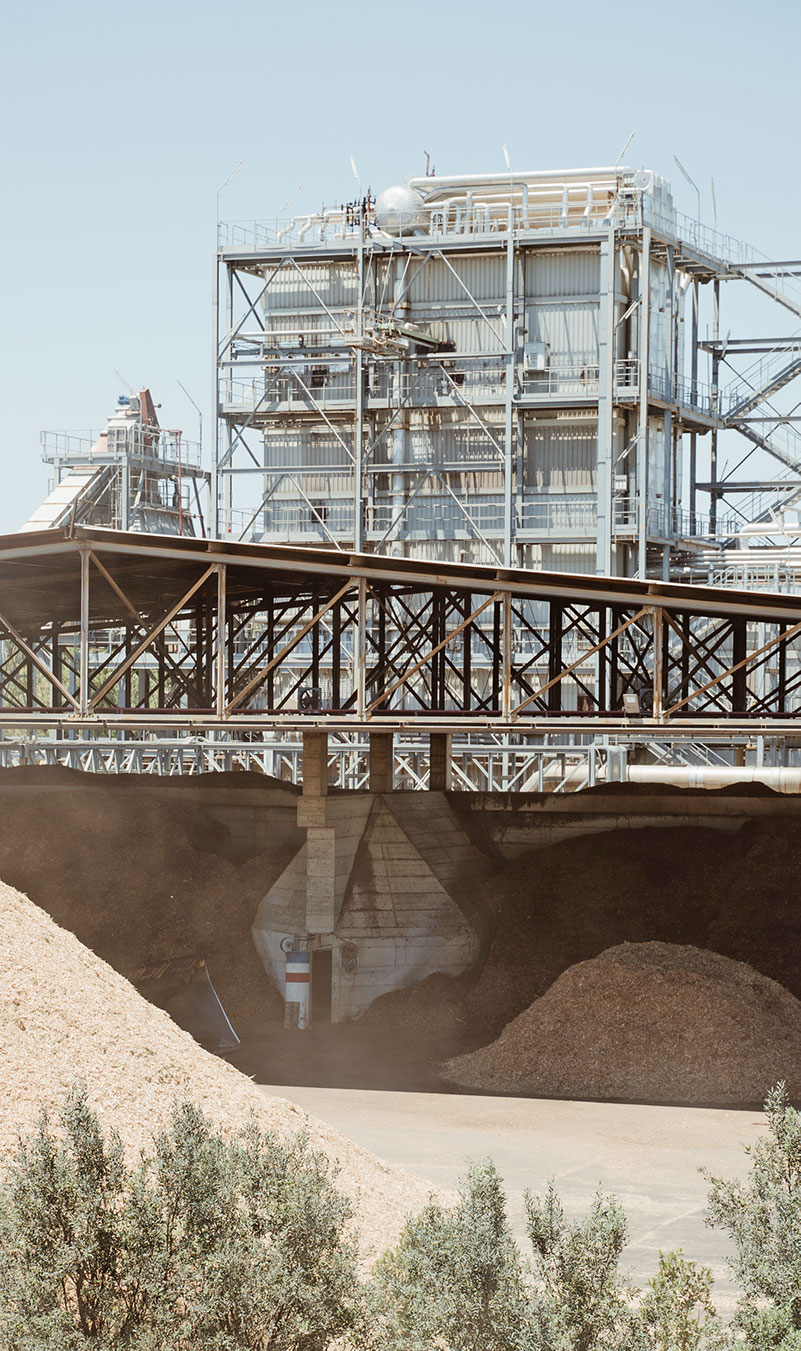The activity based on private capital of Gruppo Serramanna Energia Spa consists in the production of electric energy from renewable energy sources, and in particular from solid biomass.
The power plant, located in Sardinia, in the province of Mediocampidano, eligible to the national incentive program for a period of 20 years, started its first parallel-grid in October 2009 and after a trial period, this became fully operative in 2010.
The activities of Gruppo Serramanna Energia Spa cover multiple fields of the biomass sector. In fact, the Groups stocks up in Italy and abroad, whether directly with its own means and forest operators, and also through a selected number of suppliers who provide finished products to the plant.
The Group’s activities also developed in the agro-energy culture sector, experimenting the most suitable cultures with the best outputs.
Renewable sources are mainly of local origin, and in order to ensure specific average calories in the combustion process, part of them comes from a few tropical countries and from the Mediterranean basin. These sources consist of wooden chips, made of virgin vegetable materials of multiple origin, and boasting the characteristics imposed by the most recent applicable laws, among which silviculture recycled materials, wood chips, maintenance of rural vegetation, maintenance of fireguard areas, agroindustrial recycled material like marc, artichoke stalk, pruning of olive cultivations, olive residues with and without seed, Palm kernel and almond shells and specific cultivations on marginal land unsuitable for food crops.












